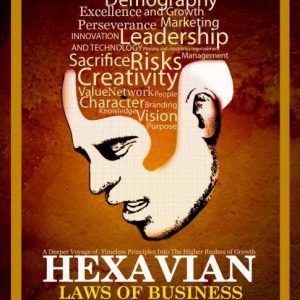Out of the 107 billion people that have died since the existence of humans and the 7 billion people alive, there are only 16 categories of people in all so far. This is according to The Myer Briggs Theory. There have been different theories on why we all act individually the way we act. Some blame it on nurture, others on nature. By nature, many contemporary personality psychologists believe that there are five basic dimensions of natural personality we exhibit, often referred to as the “Big 5” personality traits. The five broad personality traits described by the theory are extraversion (also often spelled extroversion), agreeableness, openness, conscientiousness, and neuroticism. In all of these, what we see is that human behavior is quite predictable. The more we known the trends triggered by nature and nurture, the better for us, for transactions and business.

We assume to know people by our interactions with them. This can be limiting. Really, there is more. The illusion of asymmetric insight is a cognitive bias whereby people perceive their knowledge of others to surpass other people’s knowledge of them. This article explores a more scientific and structured way to analyze and predict people. People are products of their nurture and nature. Nurture refers to how we grew up, our influences through environment, exposure types and social interactions. We see nurture even in nature. Take for example, the tallest tree didn’t just grow to become that. It grew that way because there was no other tree drastically blocking its sunlight, no one came across its path to cut it down and that the surrounding soil was more fertile and it understood how to leverage it for extraordinary growth. Most people arrive at their dispositions in life based on nurture, and the rest nature. Nature is their personality type. And for the sake of this article, I will refer to The Myer Briggs Theory and test.

The concept I am sharing here is called the Myer Briggs Personality Test. Everyone should take it. A few years ago I did, and realized that I am ENTJ, meaning I am an Extrovert, Intuitive, Thinking and judging type of person!

Knowing who you are and others you deal with will save you from certain situations. It’s a set of codes that can help you react and treat people differently and better if you can deciphers theirs, knowing we are different. It’s called the MBTI test,
The Myers–Briggs Type Indicator (MBTI) is an introspective self-report questionnaire designed to indicate psychological preferences in how people perceive the world around them and make decisions. The more you know yours and that of those around you, the more likely you’d be more successful.

The Myer Briggs Personality Model looks at 4 different parameters (and each parameters you can either be one of the two letters that represents their opposites).
It looks at us and the world in relation to how we
- Extroversion –This refers to how we focus our energy. We can either be E or I ( (that is are you Extrovert or Introvert?). Extroverted people are characterized by excitability, sociability, talkativeness, assertiveness, and high amounts of emotional expressiveness.1 People who are high in extraversion are outgoing and tend to gain energy in social situations. Being around other people helps them feel energized and excited. Introverts are opposites. Which one are you?

People who are low in extraversion (or introverted) tend to be more reserved and have less energy to expend in social settings. Social events can feel draining and introverts often require a period of solitude and quiet in order to “recharge.”
Extraverted are action-oriented, while introverted are thought-oriented. Extraverted seek breadth of knowledge and influence, while introverted seek depth of knowledge and influence. Extraverted often prefer more frequent interaction, while introverted prefer more substantial interaction. Extraverted recharge and get their energy from spending time with people, while introverted recharge and get their energy from spending time alone; they consume their energy through the opposite process
- Gather information; are you S or N (are you Sensing or Intuitive?)- Some people are more intuitive than others. Intuitive people make better entrepreneurs. This is so because real entrepreneurs can look aggressive and noisy, but they have a secret chamber, and in it, a voice comes, cutting in at times without their permission, it says sometimes, “go’, or “stop’, or “peace be still message” during the storm. But in the outside, it manifests as what we call gut feelings. It’s that eureka mindset. It’s that point when logic is defiled by something deeper they can’t explain. They just obey. It’s like you know, you don’t know how you know but you just know. Sometimes we are just at the right place just at the right time, same as our decisions. Like copied mathematics assignment, you can’t explain. But we are right. We know we are. We don’t know how we know, but we just know.
- Make judgment: T or F (do you make decisions by Thinking or Feelings)- Thinking and feeling are the decision-making functions. The thinking and feeling functions are both used to make rational decisions, based on the data received from their information-gathering functions (sensing or intuition). Those who prefer thinking tend to decide things from a more detached standpoint, measuring the decision by what seems reasonable, logical, causal, consistent, and matching a given set of rules.
- Organize Life J or P (are you Judging or Perceiving)- This refers to how we organize thoughts for decisions. You can either be a judger or a perceiver as a dominant trait. Take for example, judgers approach life in a structured way, creating plans and organizing their world to achieve their goals and desired results in a predictable way. They get their sense of control by taking charge of their environment and making choices early.Judgers are self-disciplined and decisive, and seek closure in decisions. When they ask for things they are specific and expect others to do as they say. They enjoy being experts. At work, they decide quickly and clearly and work to get the job done.
Perceivers may see them as rigid and opinionated. Perceivers perceive structure as being more limiting than enabling. They prefer to keep their choices open so they can cope with many problems that the know life will put in their way. They get their sense of control by keeping their options open and making choices only when they are necessary. They are generally curious and like to expand their knowledge, which they will freely acknowledge as being incomplete. They are tolerant of other people’s differences and will adapt to fit into whatever the situation requires.
At work, they tend to avoid or put off decisions and like most the exploration of problems and situations.
While this conversation is much more about nature, lets also not forget that arguably what is most important is nurture. Nurture is how you got here. In other words, our present is a cumulative trend of our past; where you currently stand and with who you are standing is one of the greatest prediction of where you are going to. And its not an individual story, its how the universe creates its own story on the move. If we put examples to this article, it becomes clearer. For example, can we say that Bill Gate became successful by nature or by nurture?

What if Bill Gate’s house as a child wasn’t a walk able distance from Washington University, where the first mainframe computer was first accessible? He went to Lakeside high school where he met Microsoft’s co-founder Paul Allen, then Harvard. They were among the first 100 kids to have access to a computer in the world. With that nurture, it was easier to set up Microsoft.
We can site more examples, from music to arts to business. Take for example; can we say that it’s the nature of Alicia Keys to be such a great pianist? Did you know that Alicia Keys was that little girl trying to play the piano in the 80’s TV show, the Bill Cosby Show? Years later, she’s won numerous Grammy awards. It must have been the cumulative advantage effect of nature. Most people’s personality is backed by this theory. The truth about success is often rewarded with leadership roles and enriched learning opportunities, leading to future advantages that are magnified throughout life. In sociology, it is called Cumulative Advantage.
 At a CBN retreat we facilitated we had an argument about nature and nurture in relation to how people become good writers. Our thoughts converged when we realized that one of the assistant directors had mutual connections with Chimamanda Adichie who happens to be the daughter of her lecturer in Nsukka in the same house where Chinua Achebe lived. Wait a second; Adichie lived in the same house as Chinua Achebe? Chinua Achebe by the way was friends with Prof ChinwEizu, a deep mind, a writer and facilitator, the person my father named me after. Nurture and nature brought me here too.
At a CBN retreat we facilitated we had an argument about nature and nurture in relation to how people become good writers. Our thoughts converged when we realized that one of the assistant directors had mutual connections with Chimamanda Adichie who happens to be the daughter of her lecturer in Nsukka in the same house where Chinua Achebe lived. Wait a second; Adichie lived in the same house as Chinua Achebe? Chinua Achebe by the way was friends with Prof ChinwEizu, a deep mind, a writer and facilitator, the person my father named me after. Nurture and nature brought me here too.
Eizu, ©Hexavia!
Strategy. Business Startup and Corporate Restructuring Consulting
T: 0803520289
Uwaoma Eizu is the lead strategist at Hexavia! He is a graduate of Mathematics with two MBAs and over a decade of experience working with startups and big businesses. He is an entrepreneur and sits on a lot of boards too. His core is in building startups and in corporate restructuring. He is also a certified member of the Nigerian Institute of Management, Institute of Strategic Management of Nigeria and the Project Management Institute, USA. By the side, he writes weekly for the Business Day newspaper.



